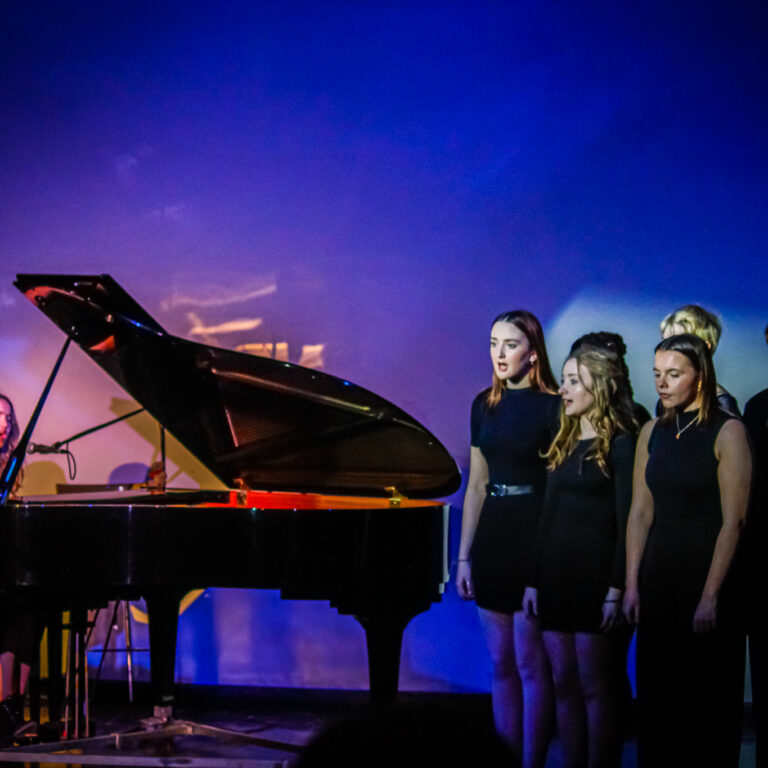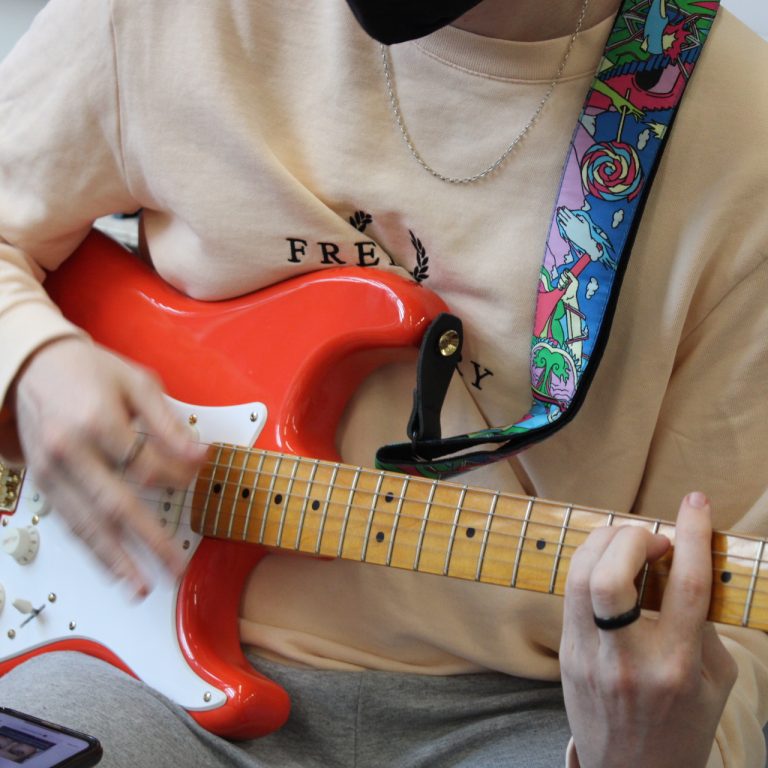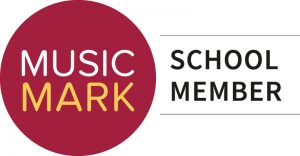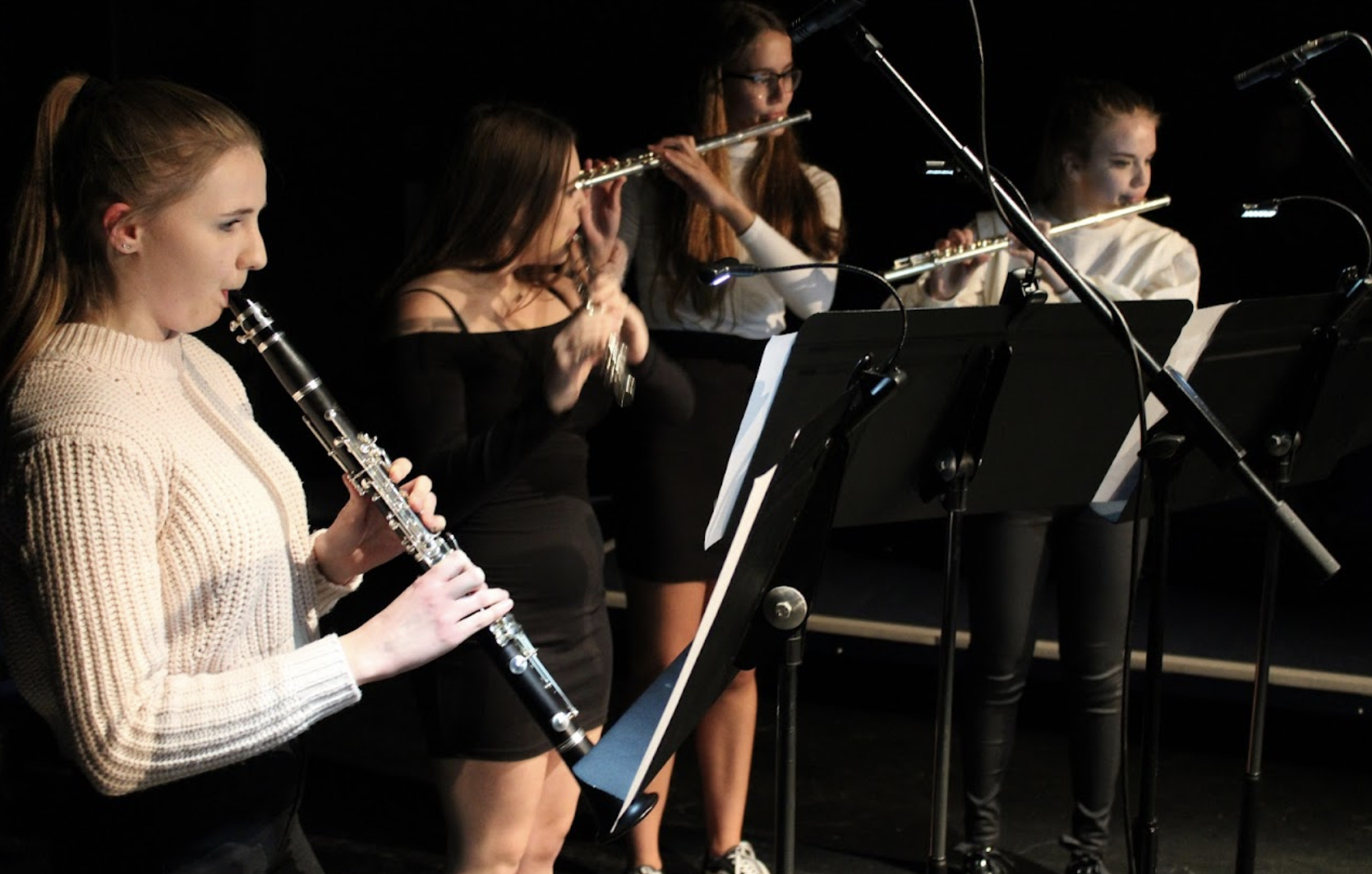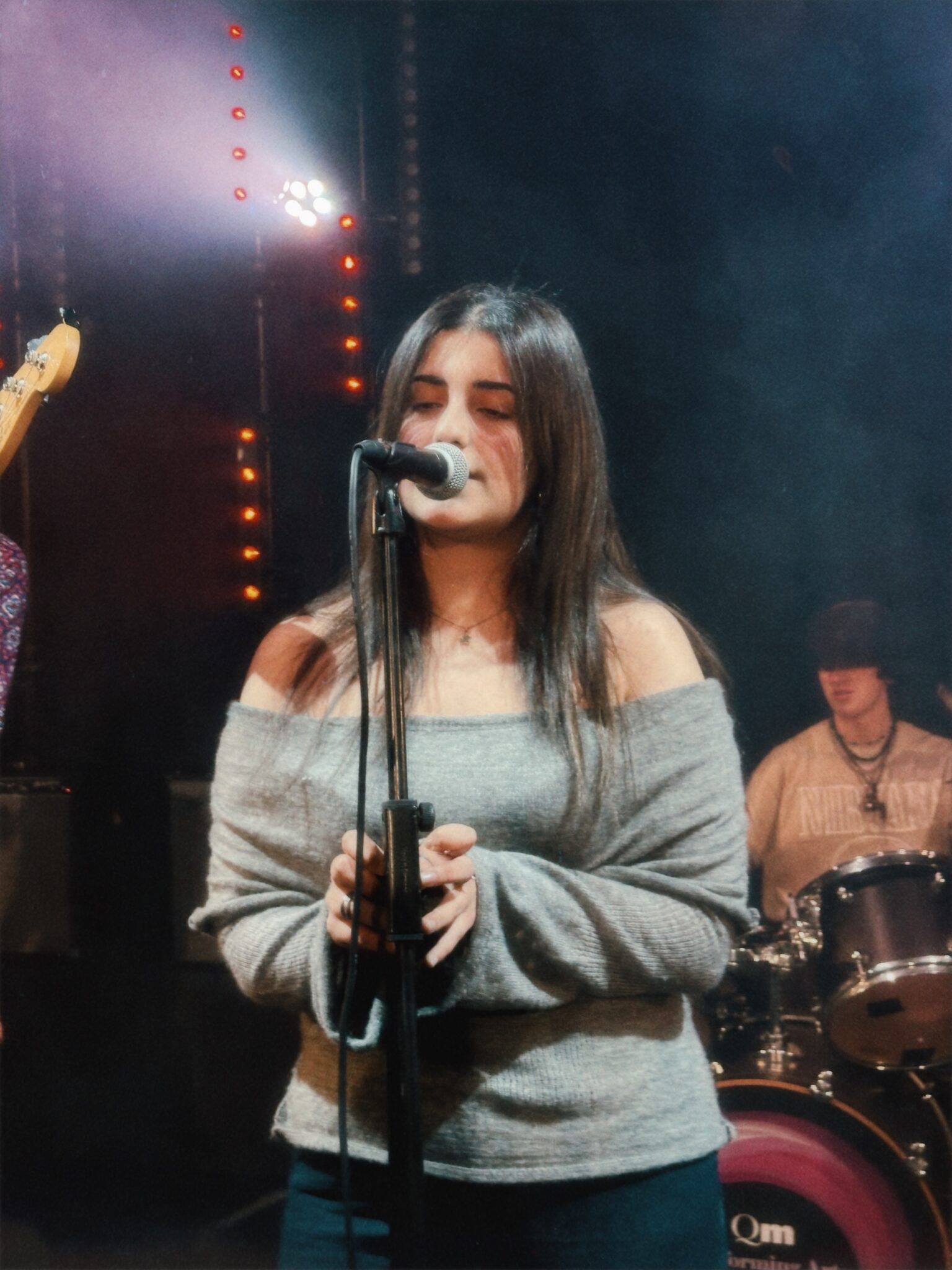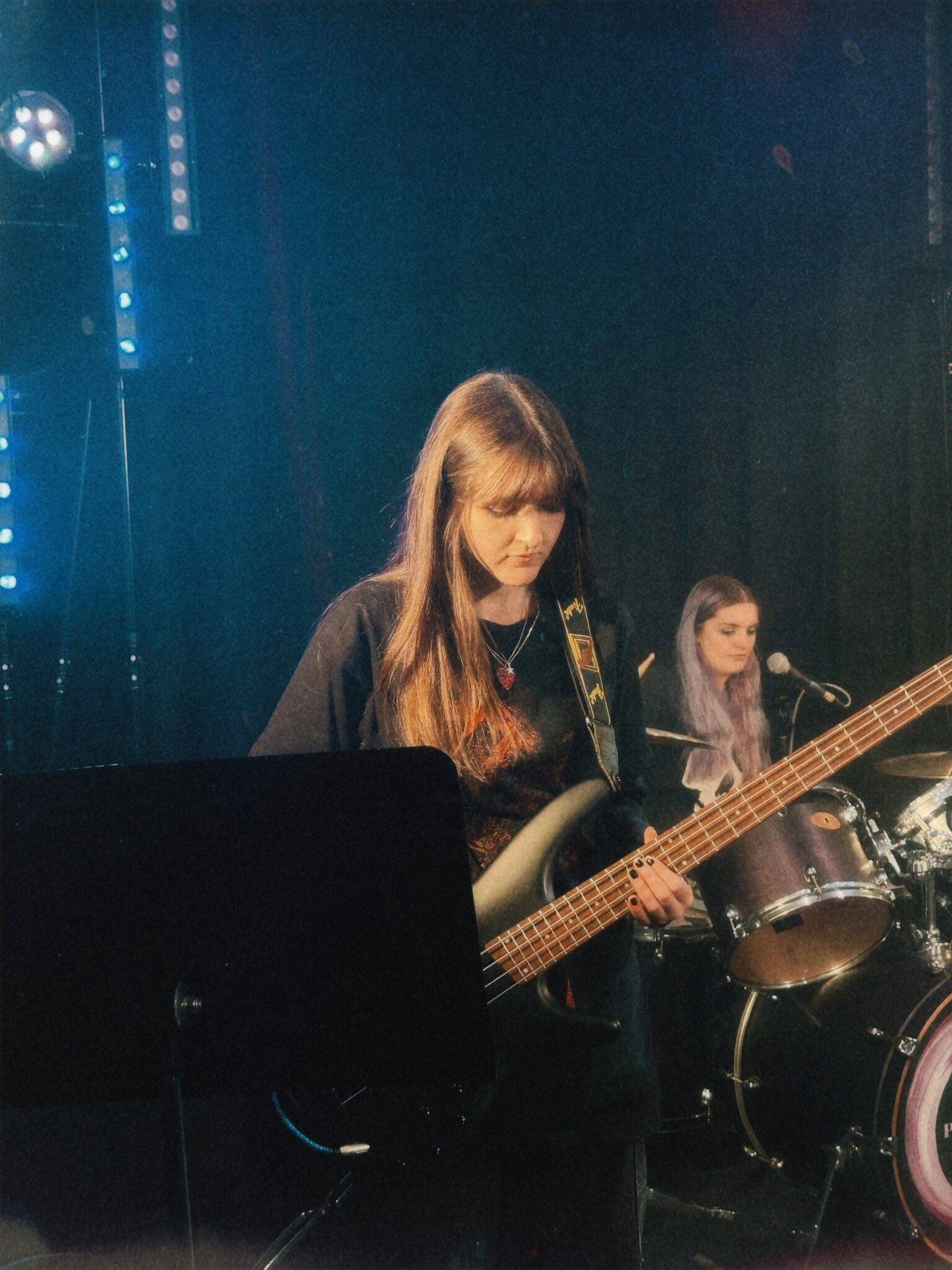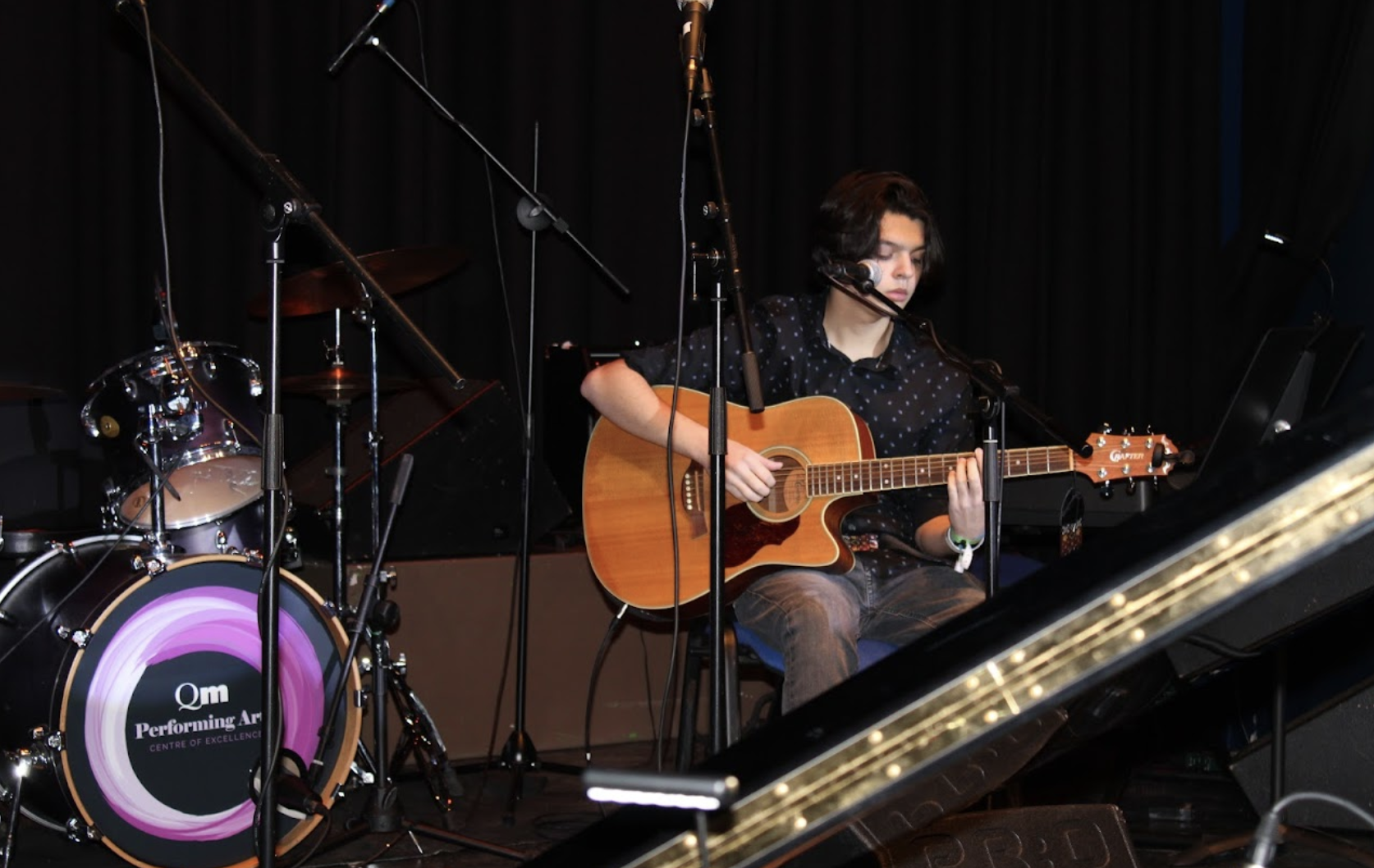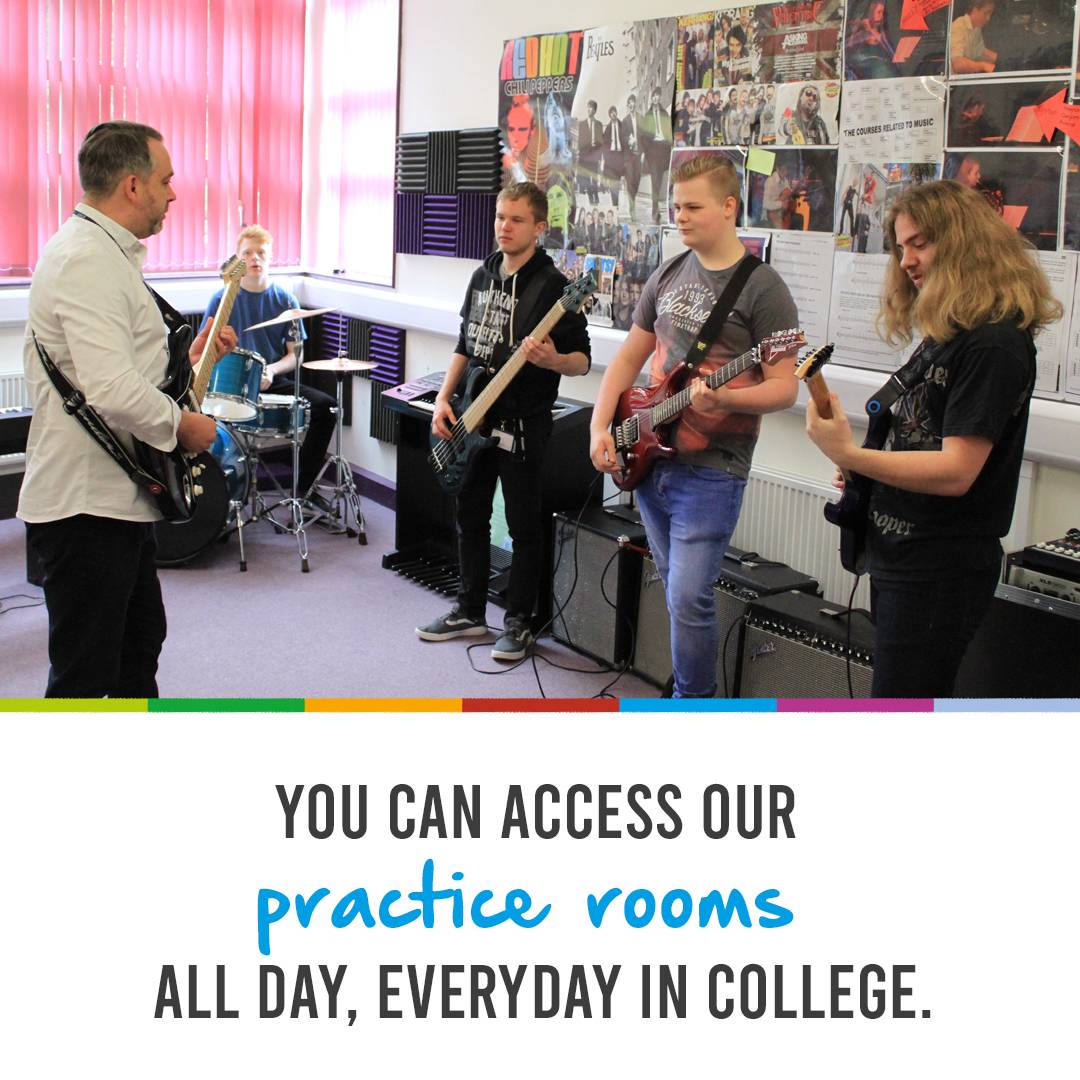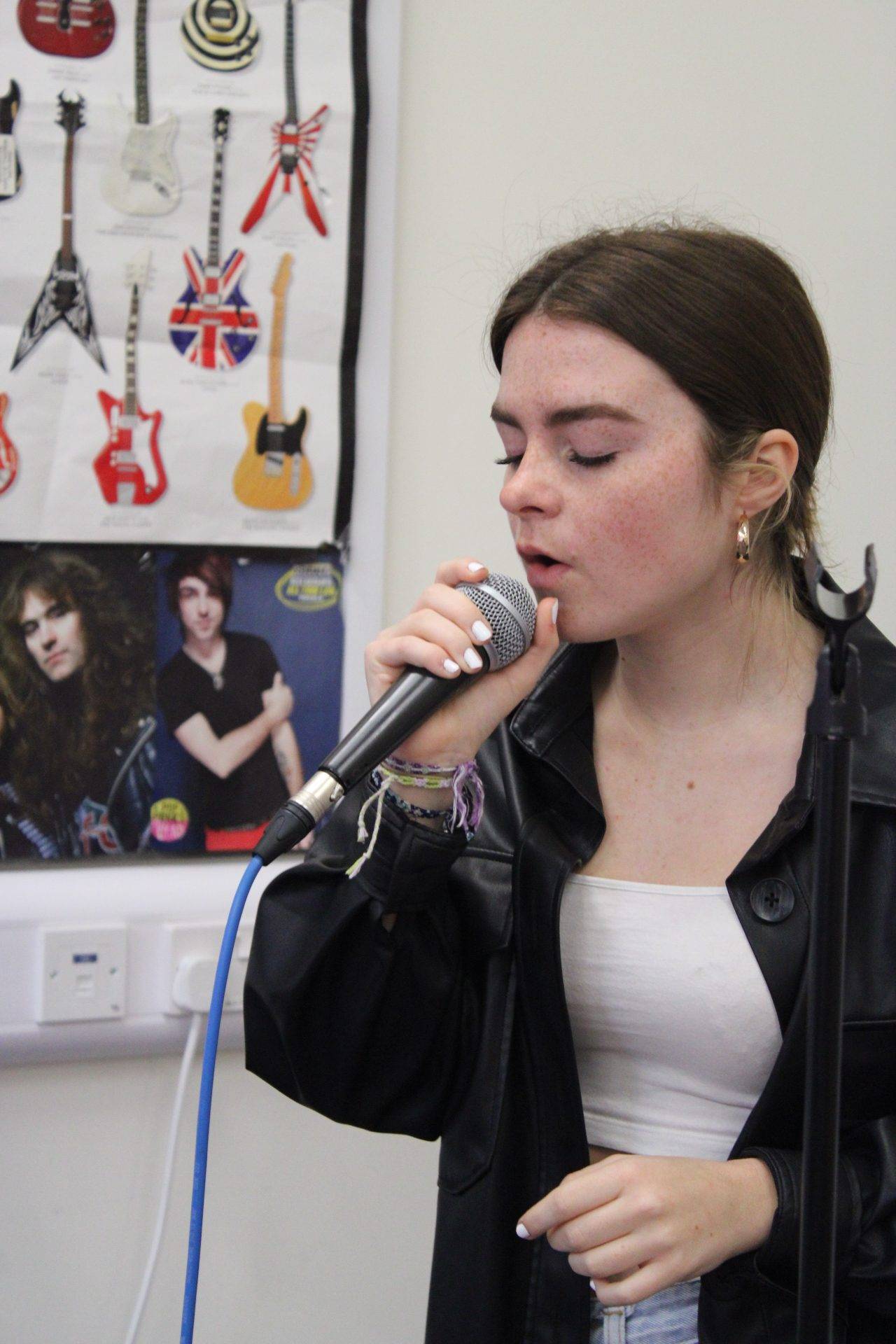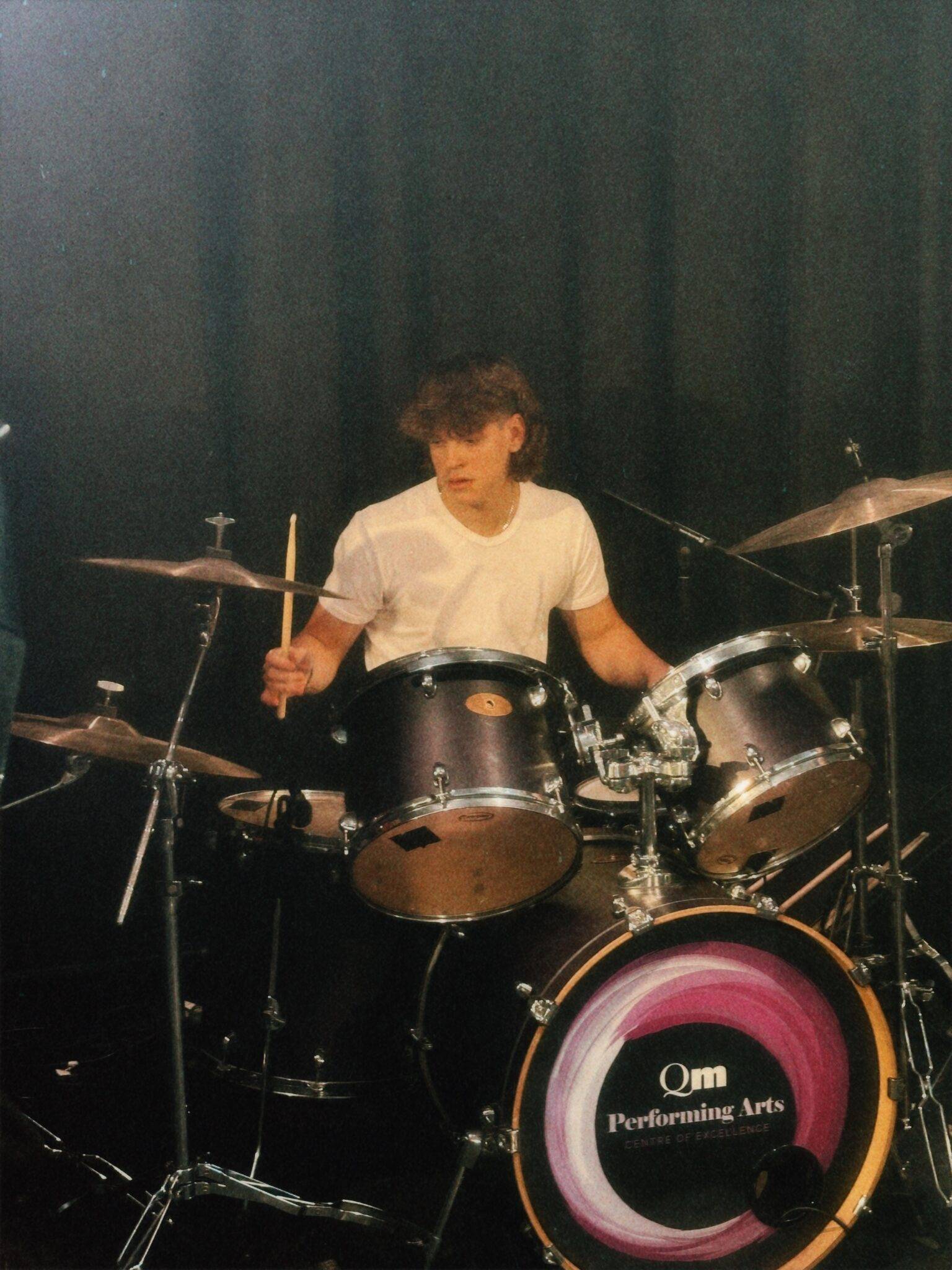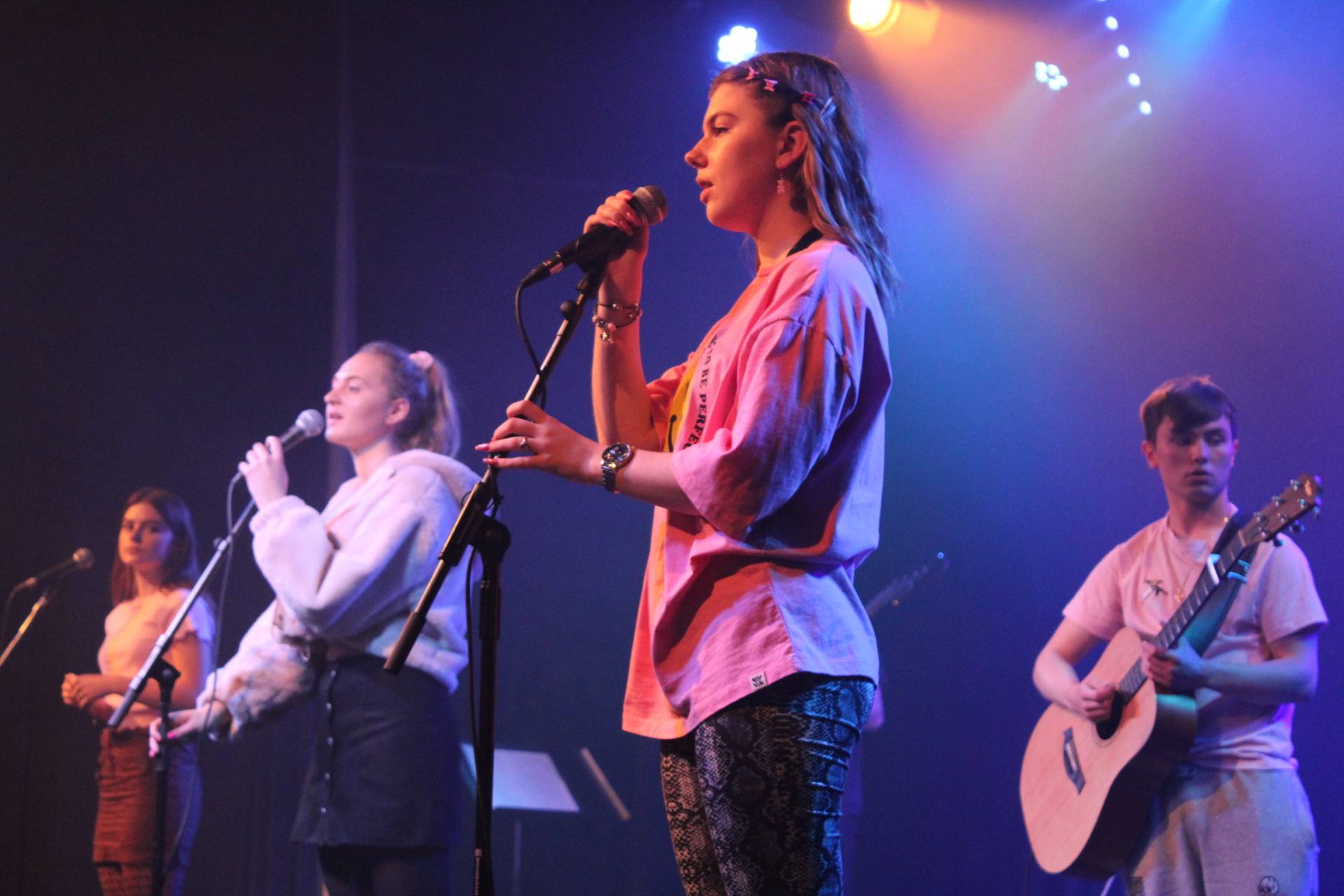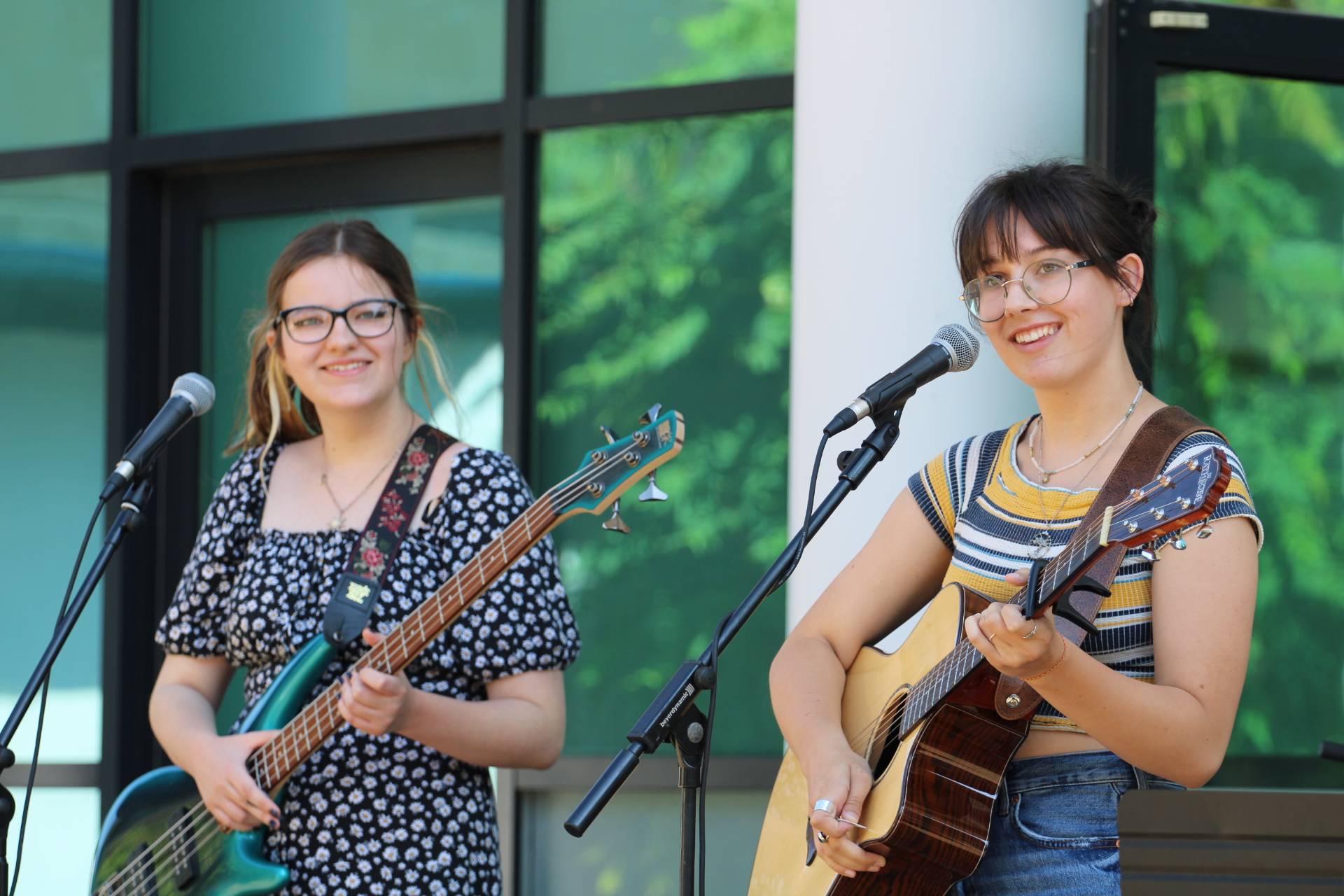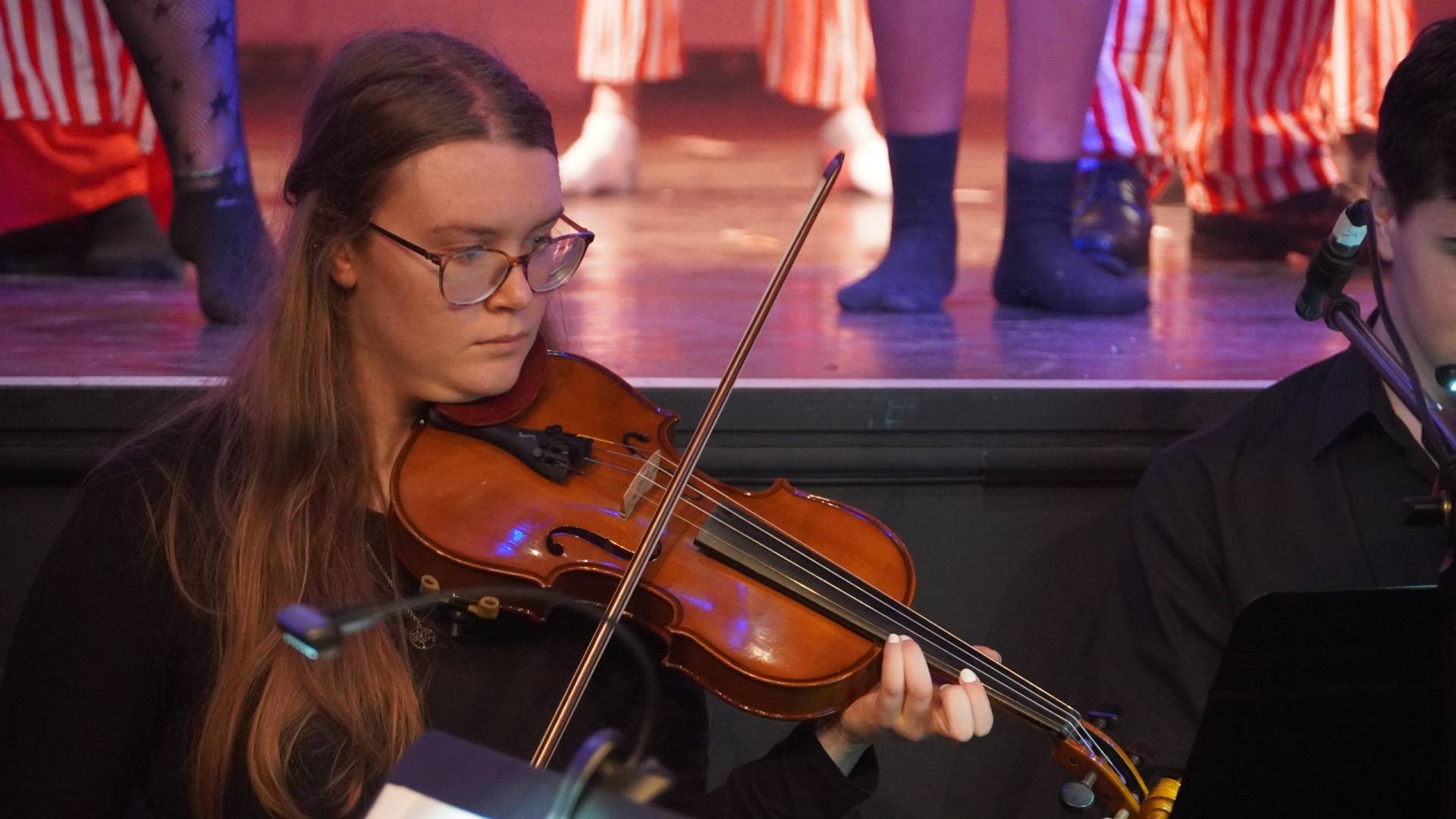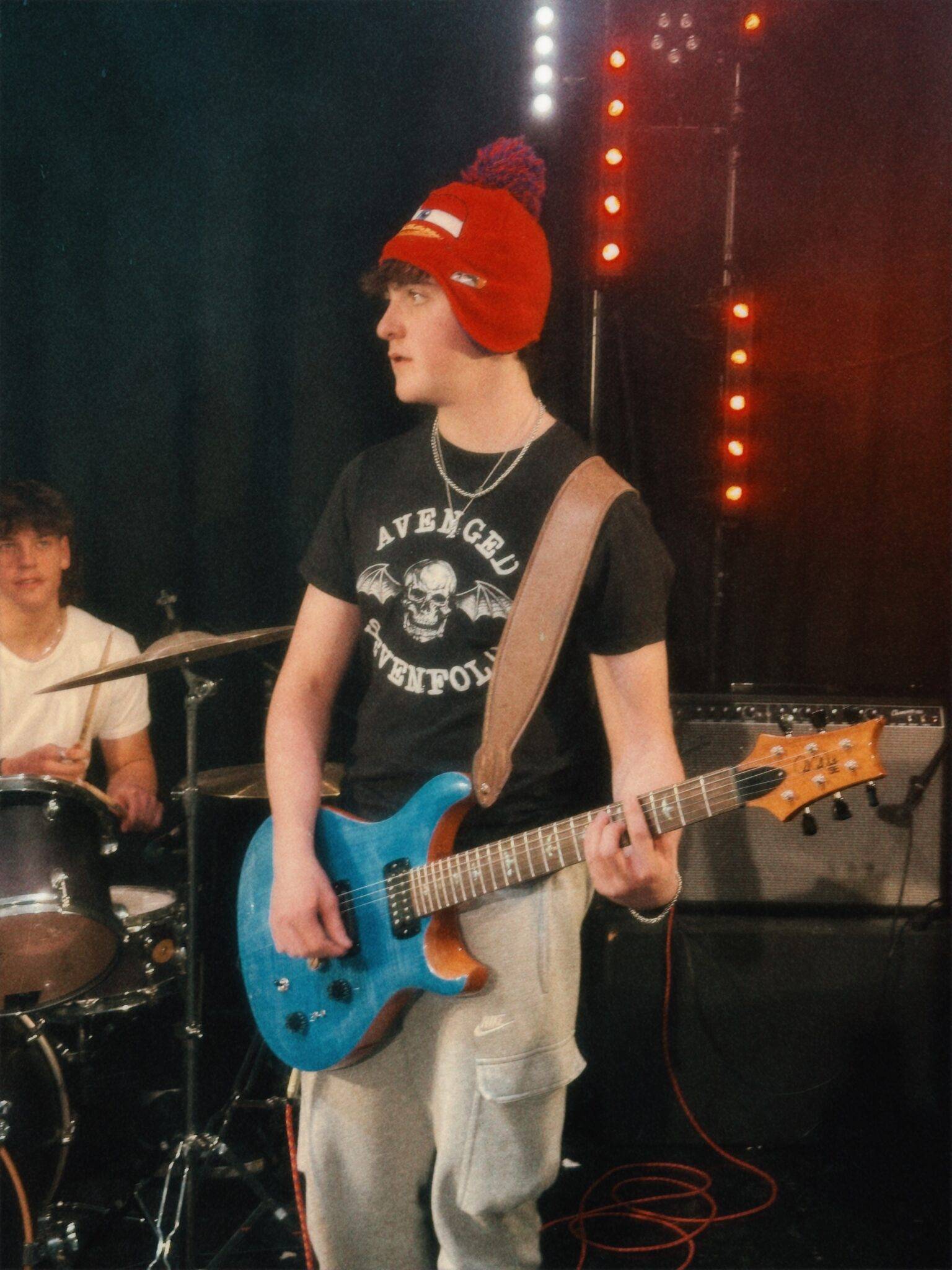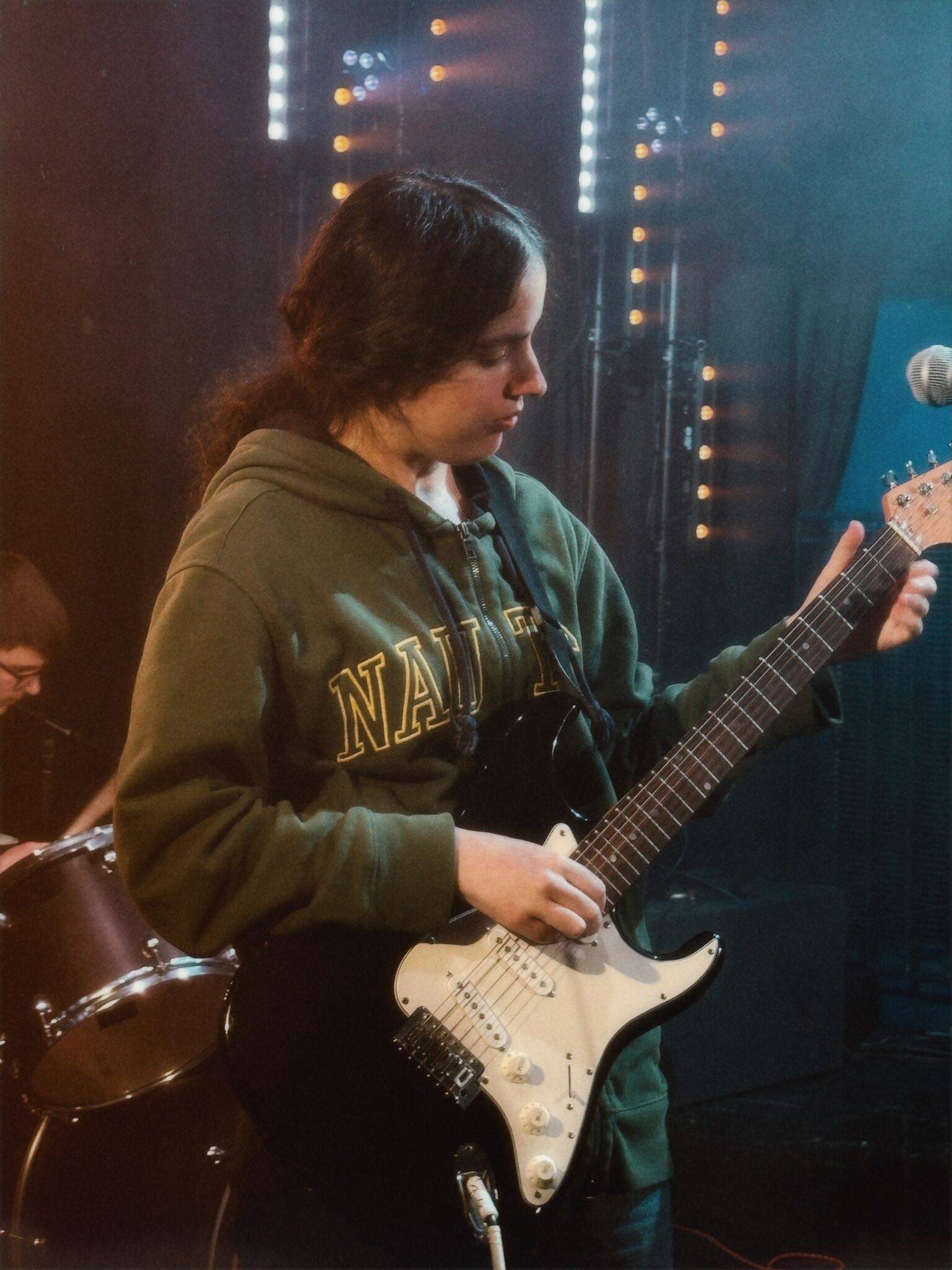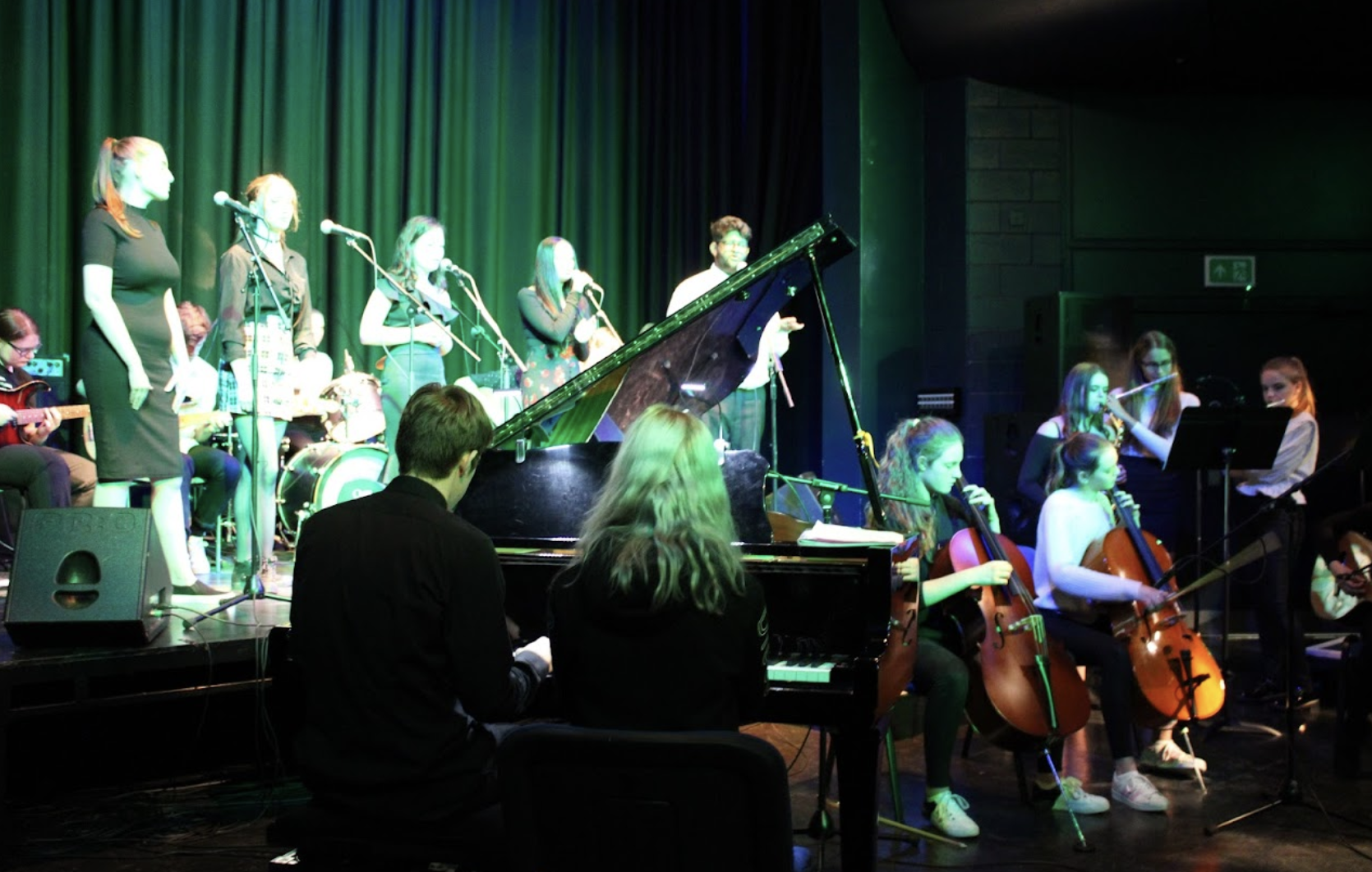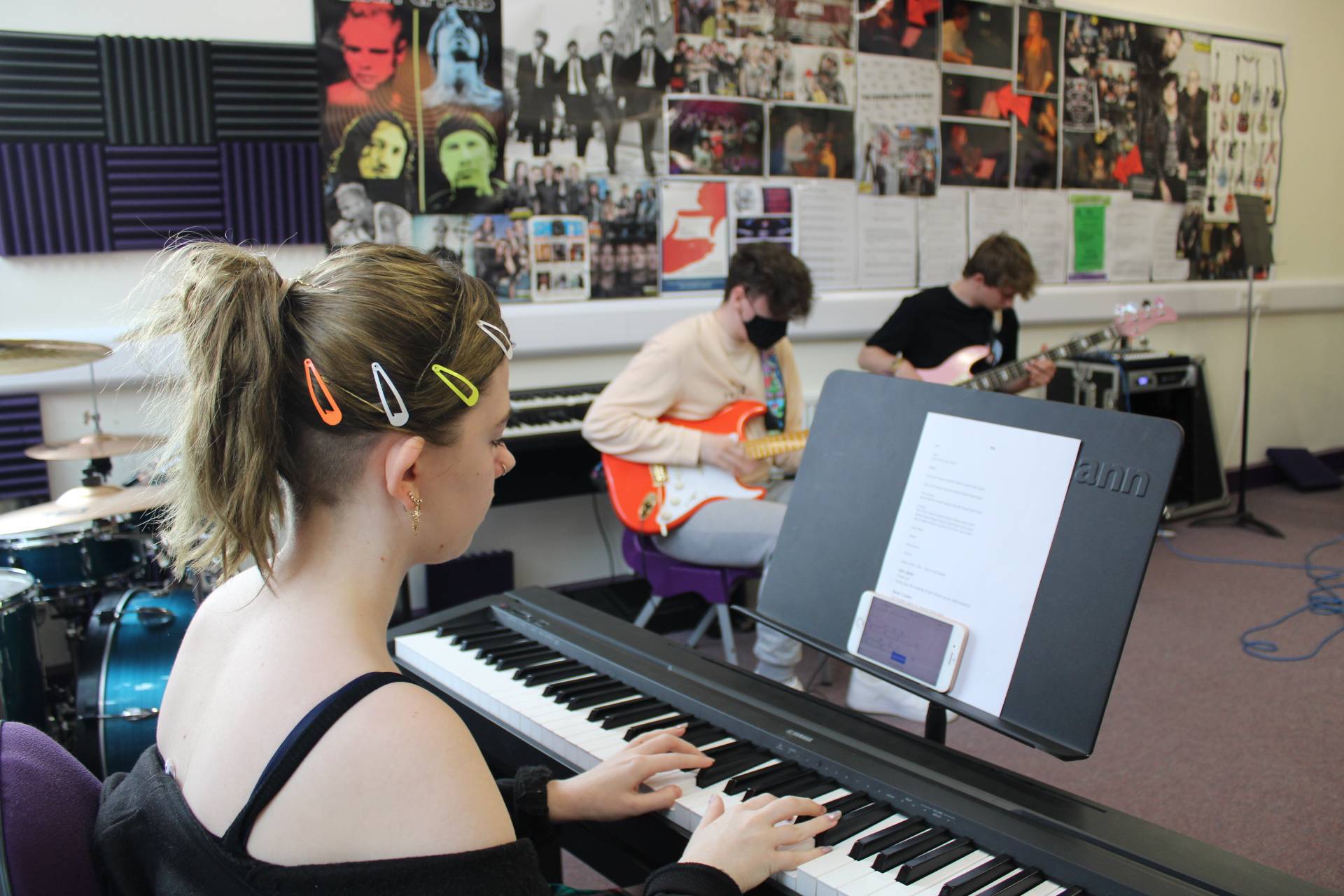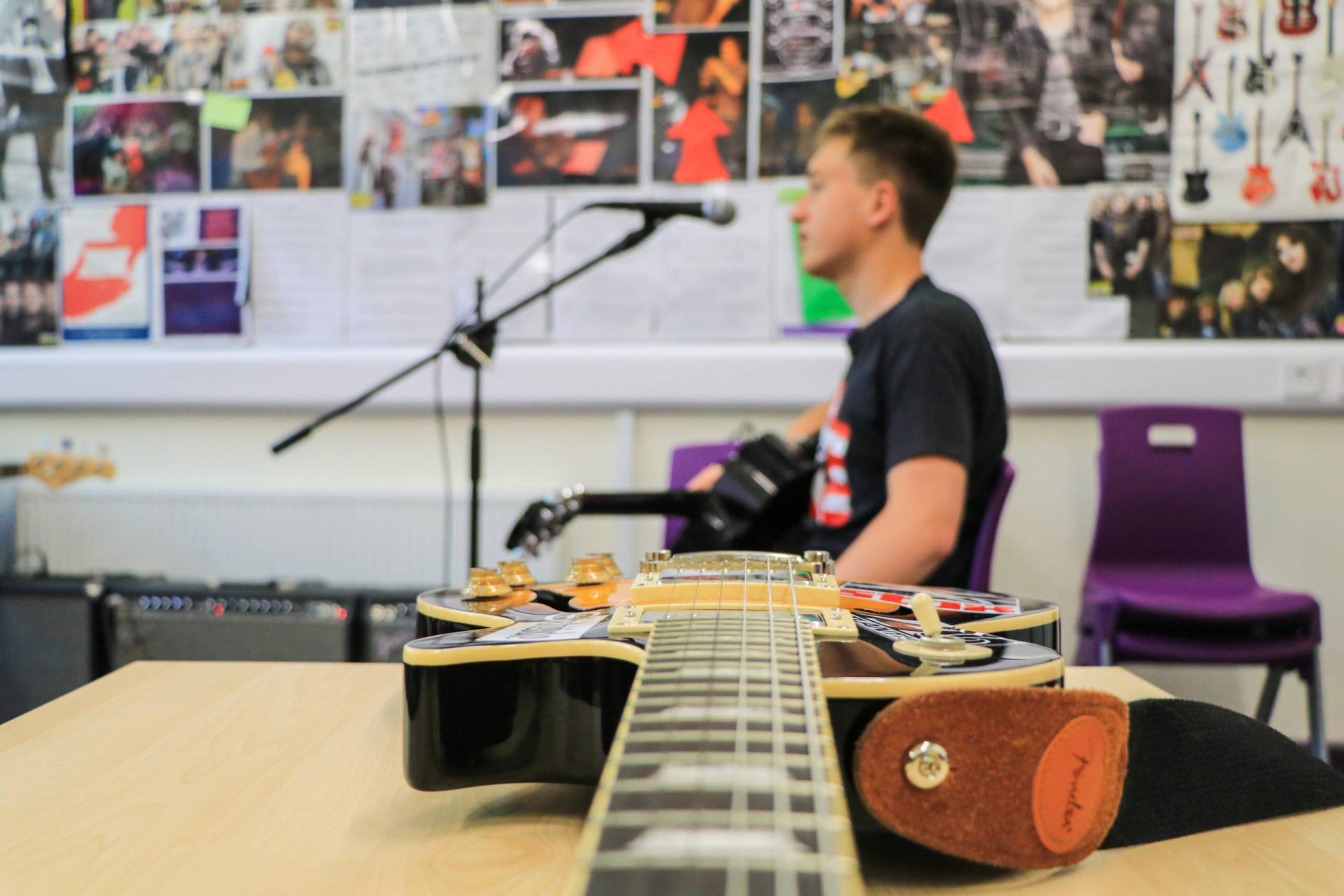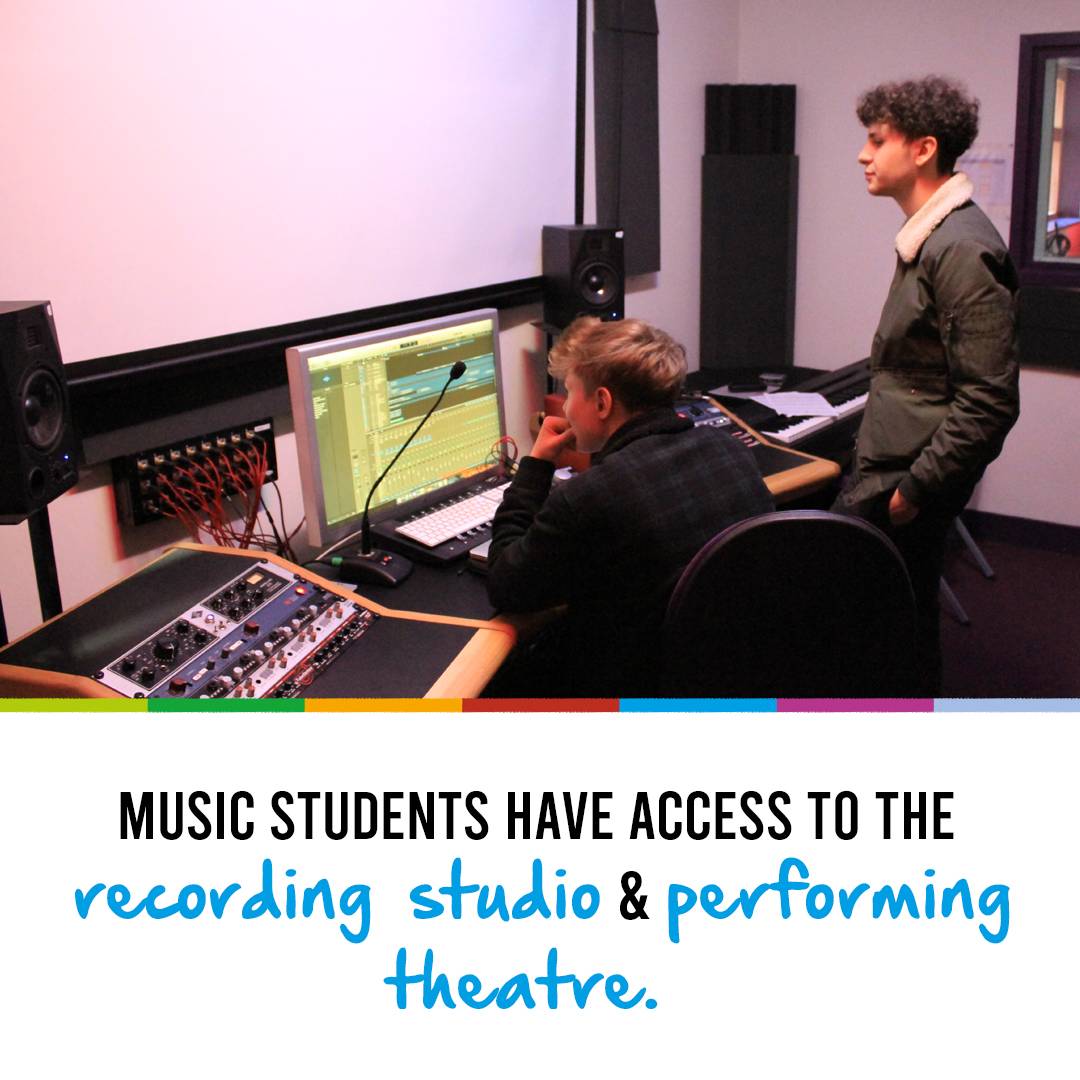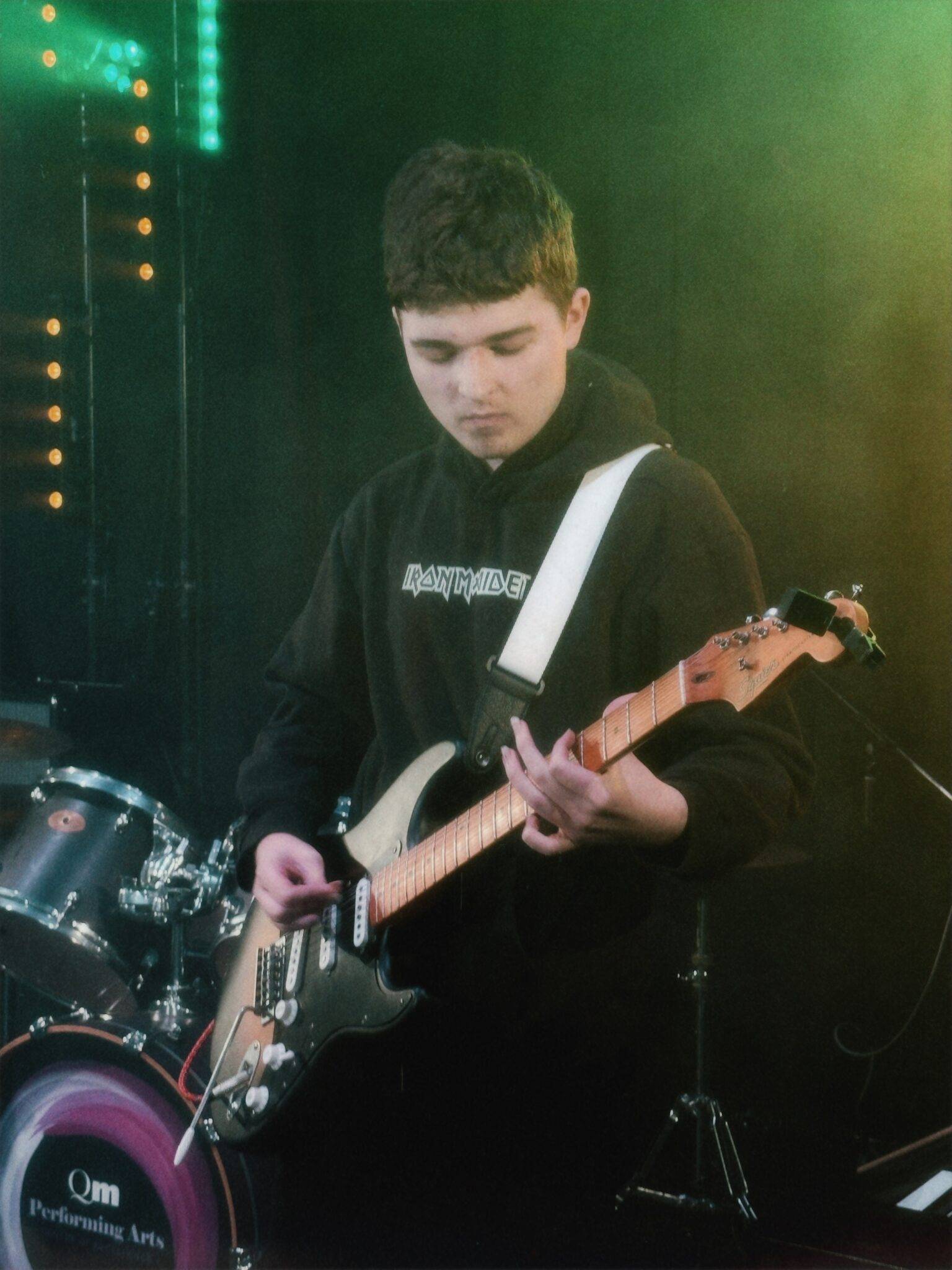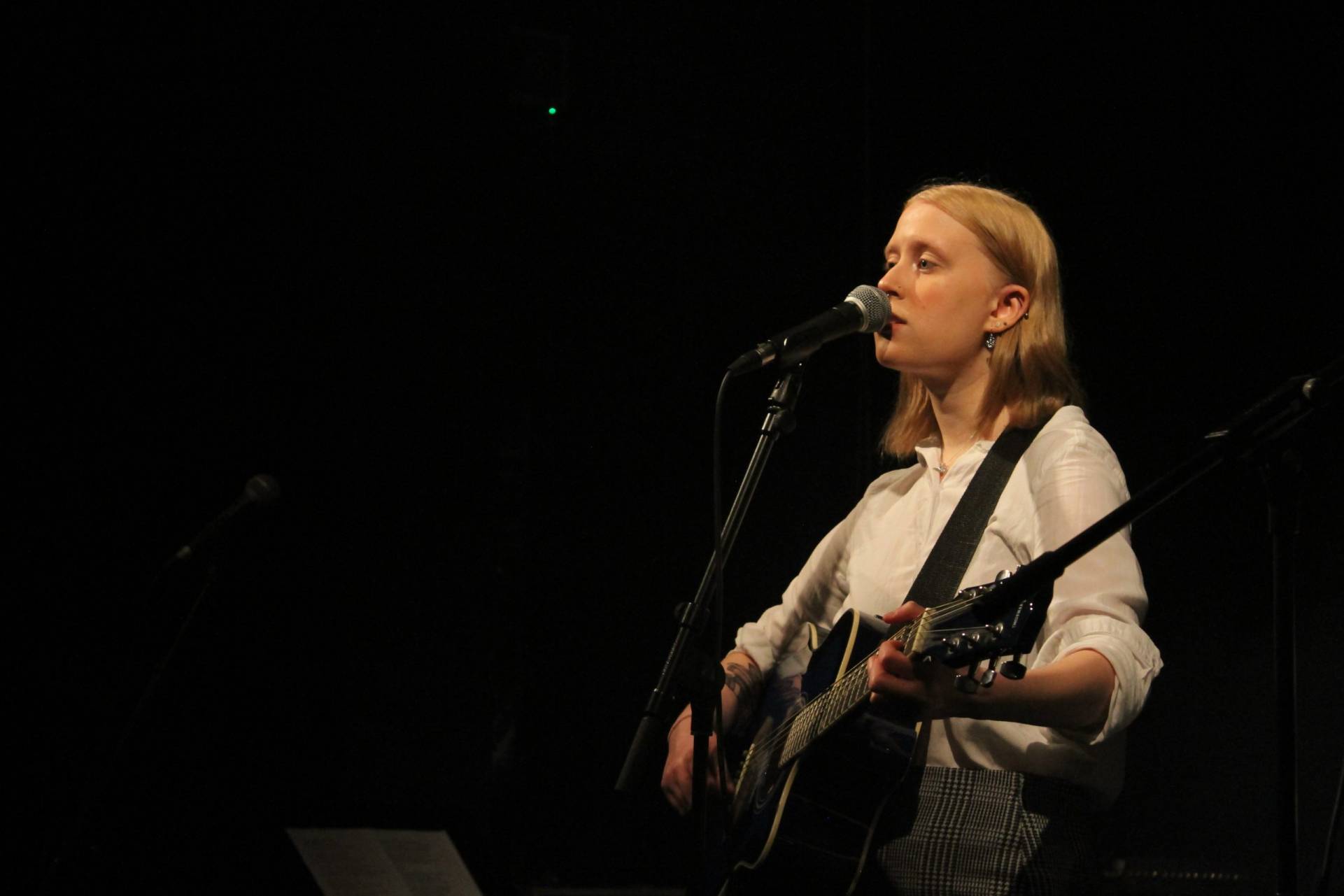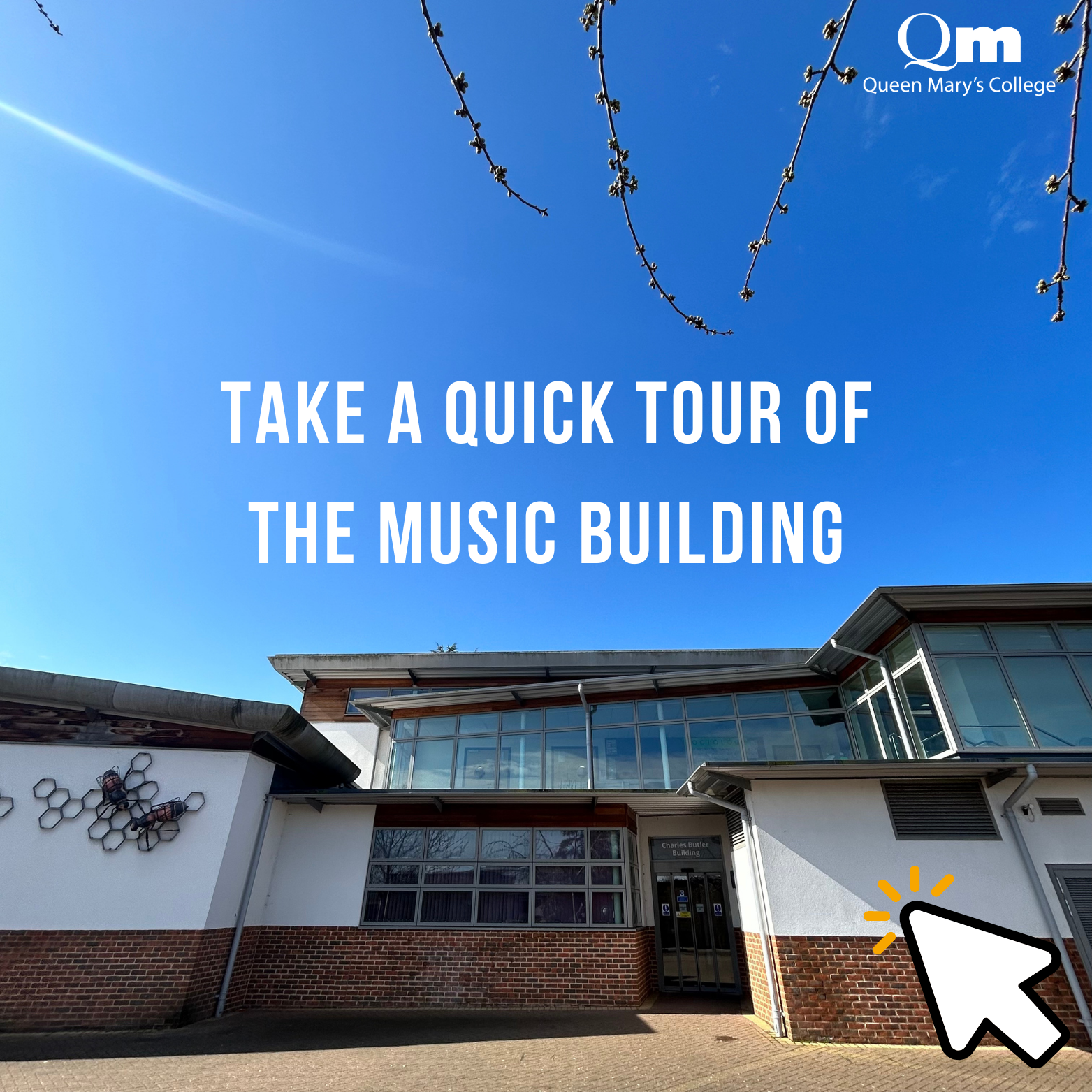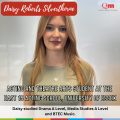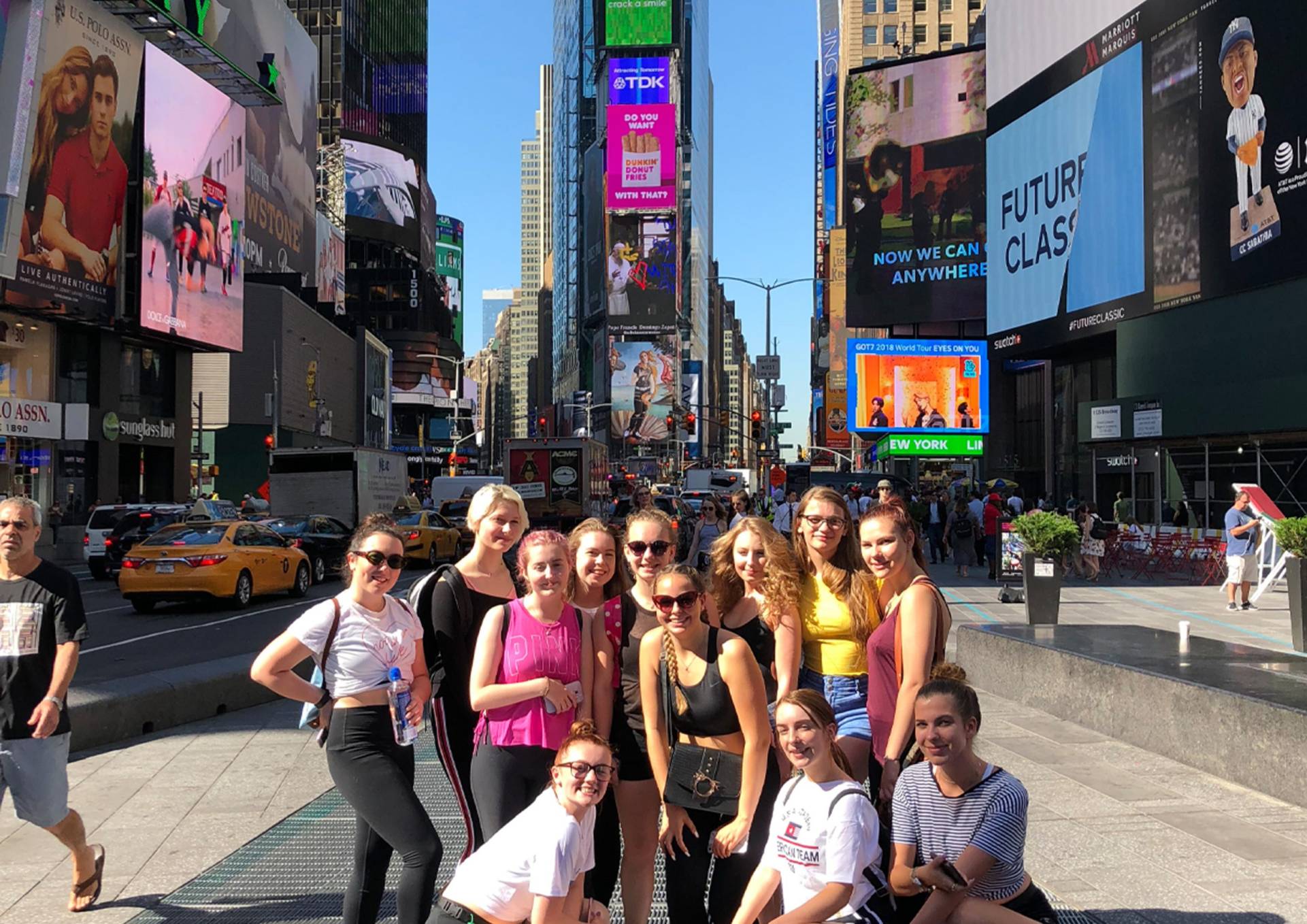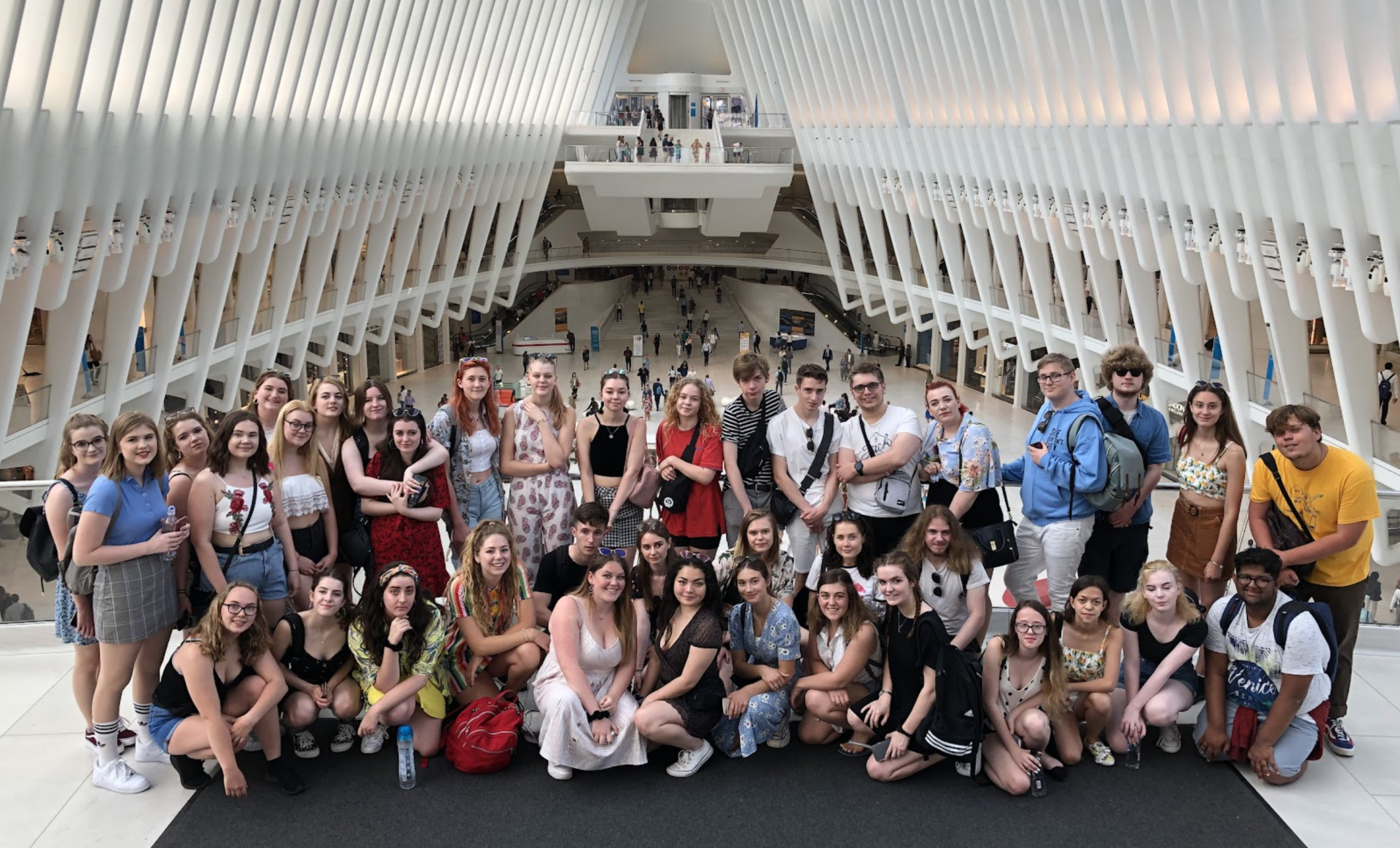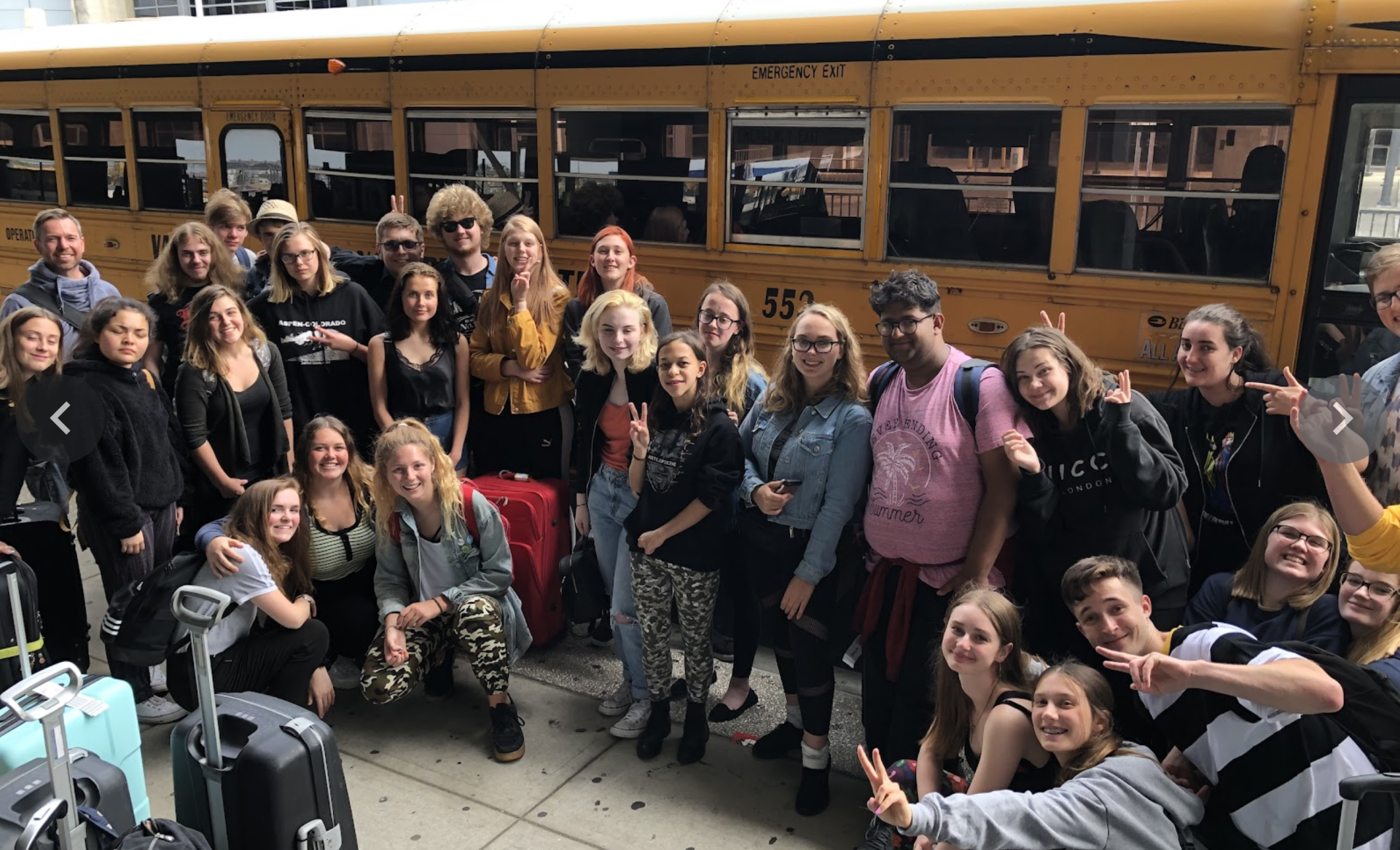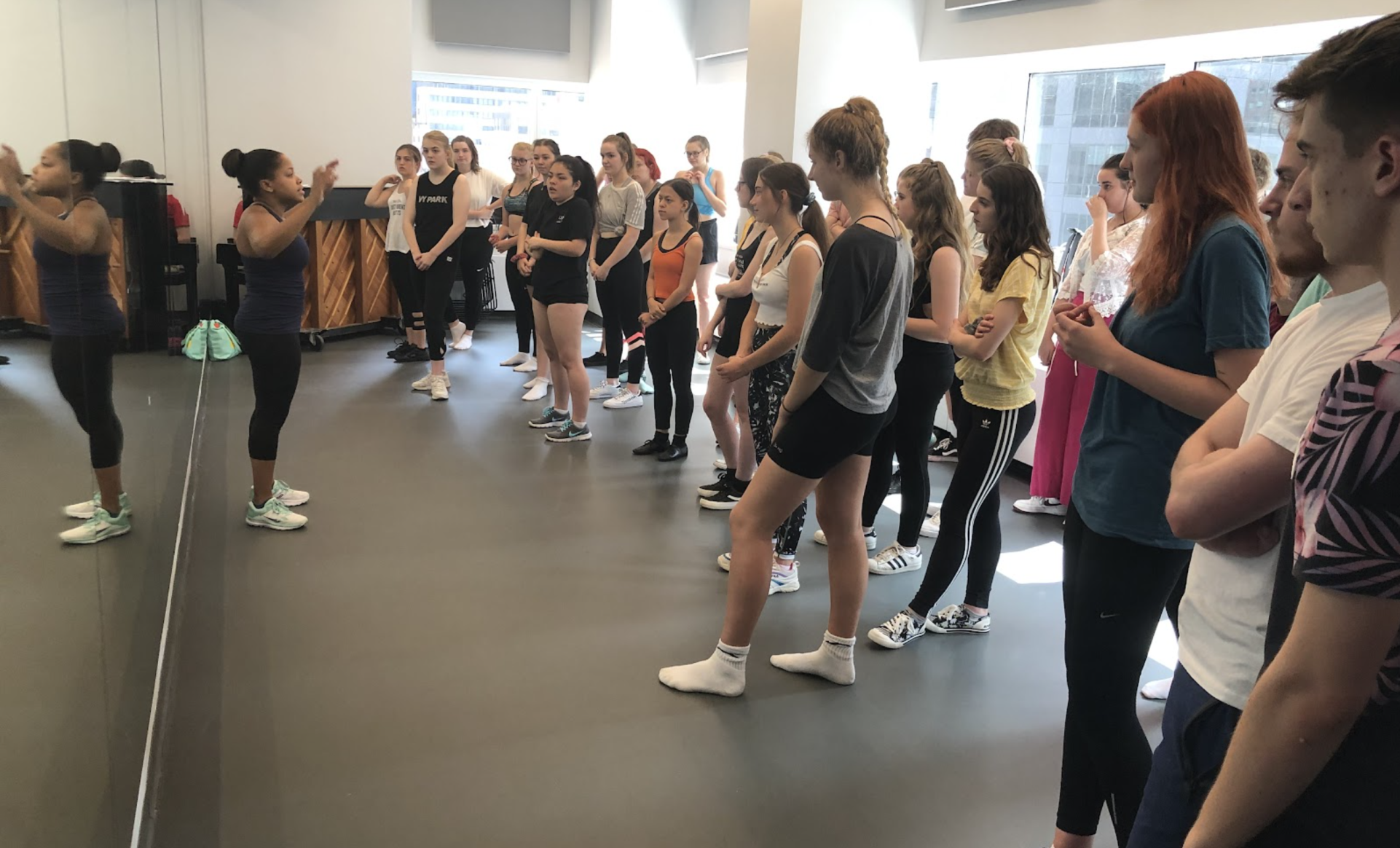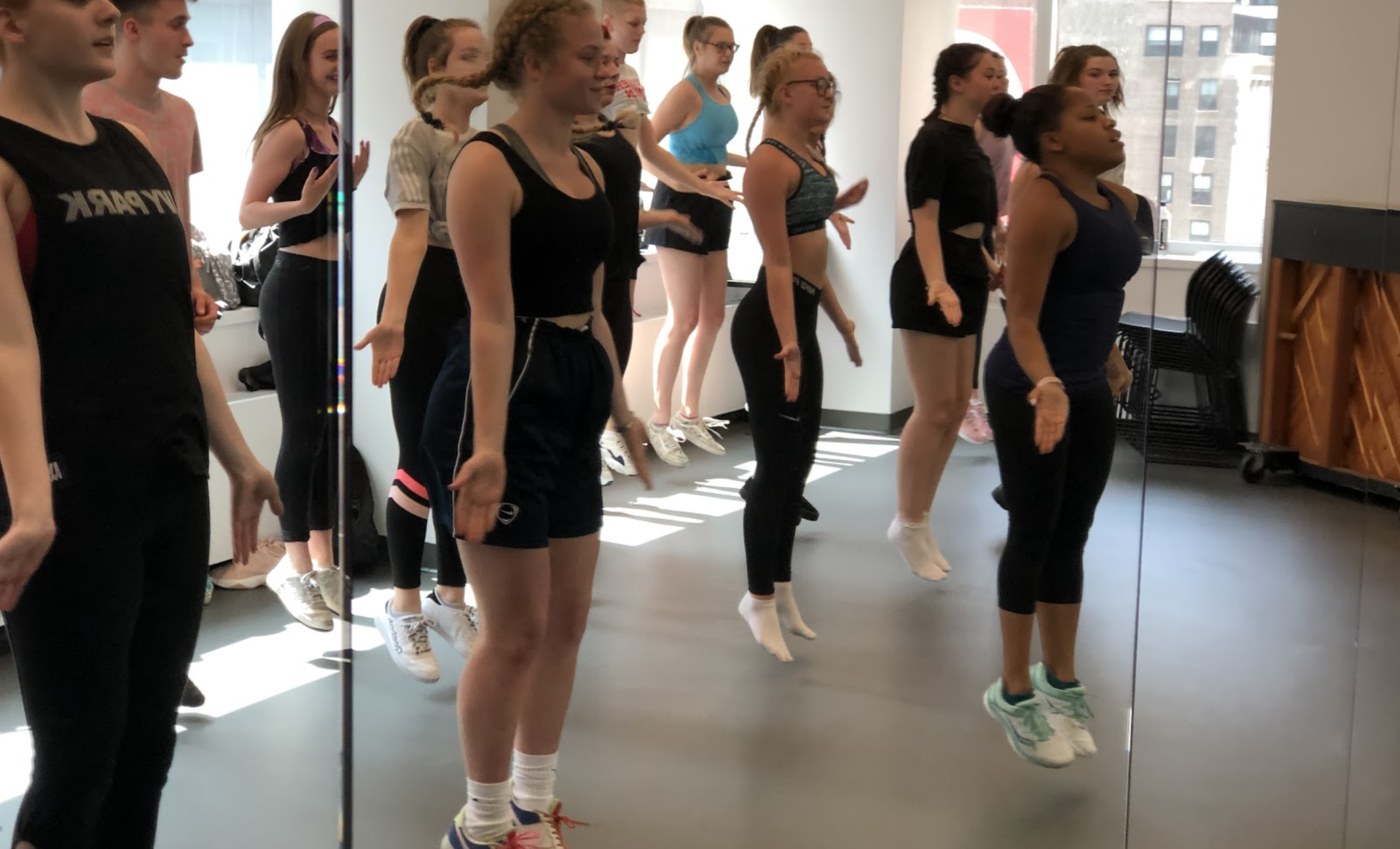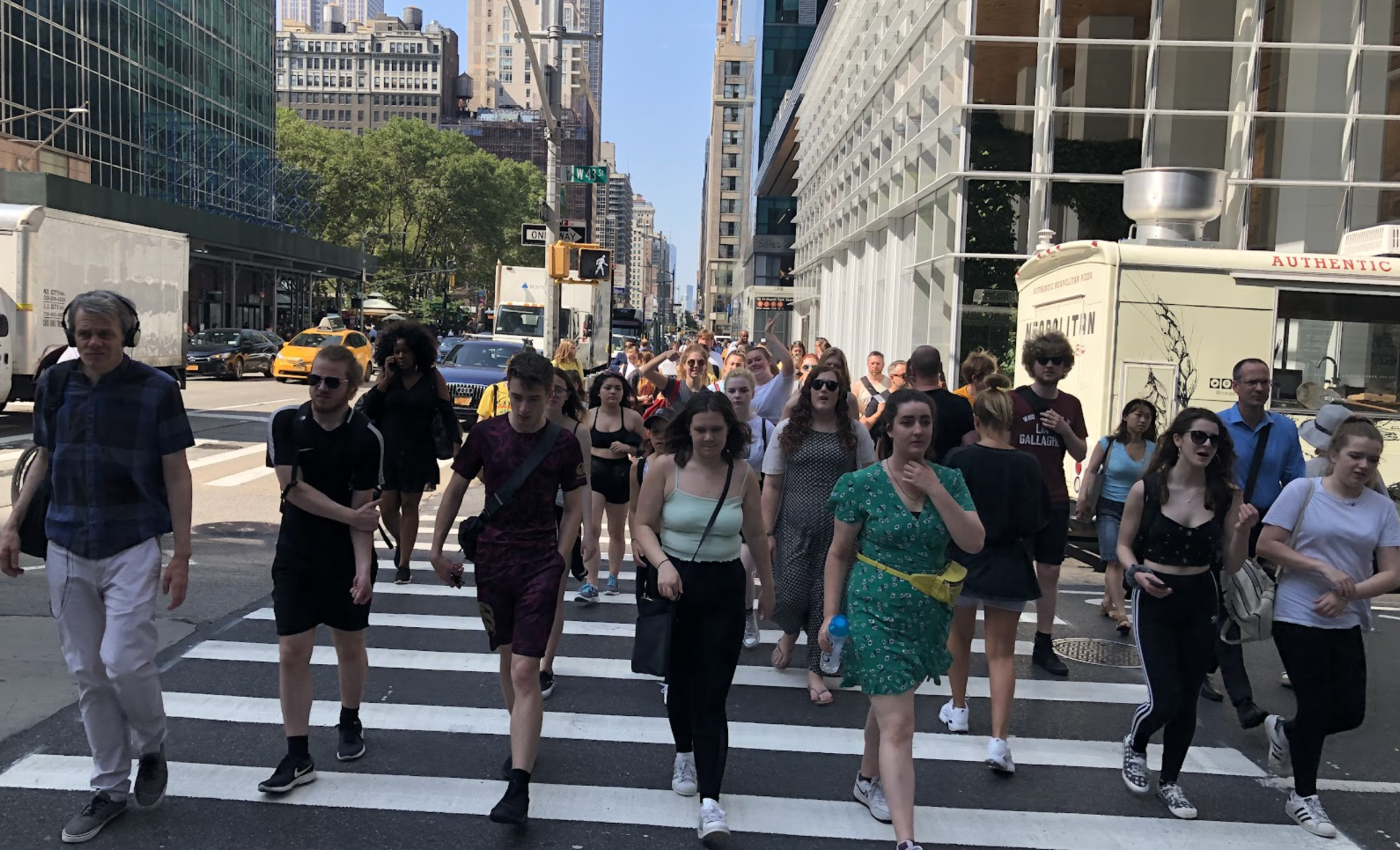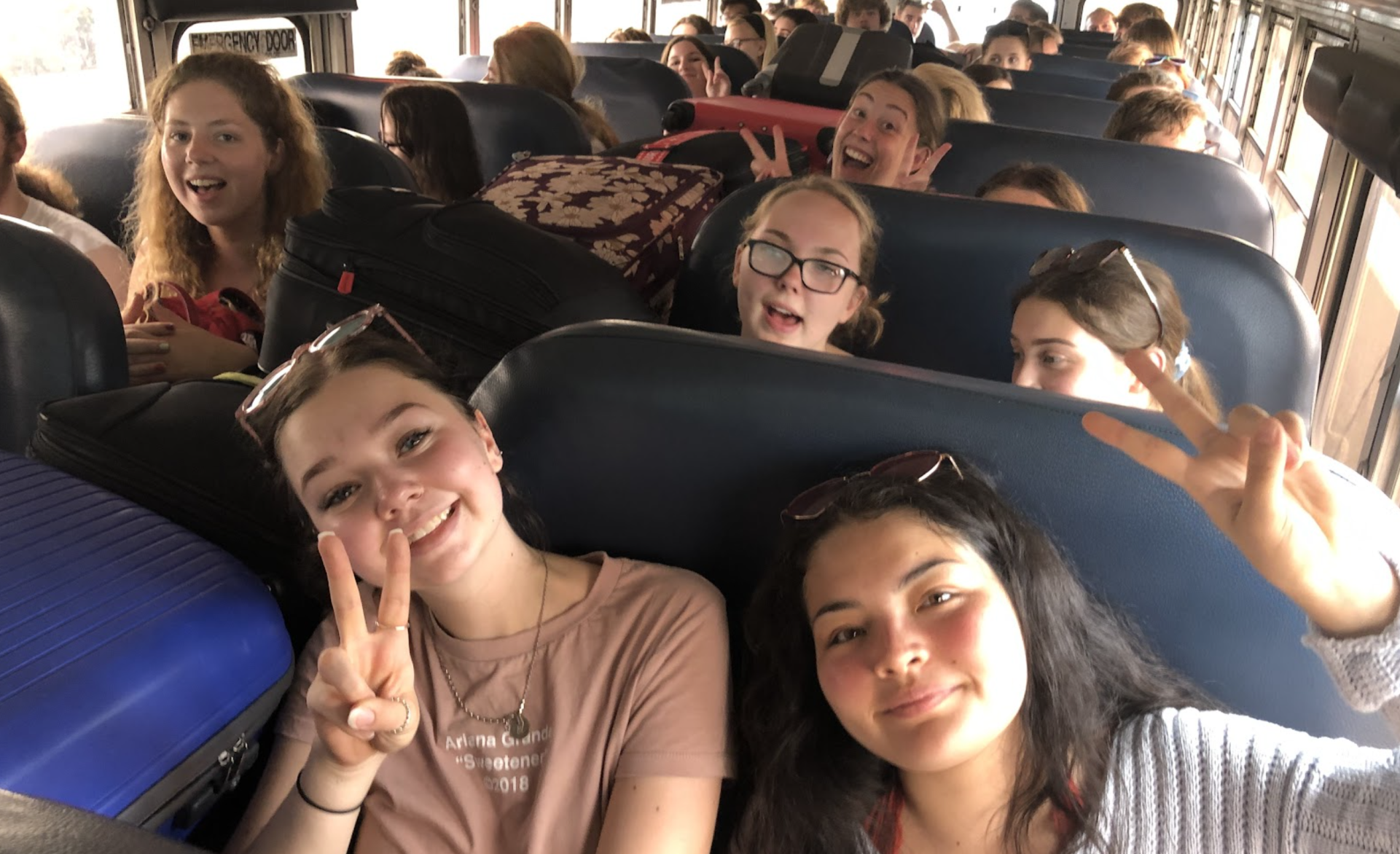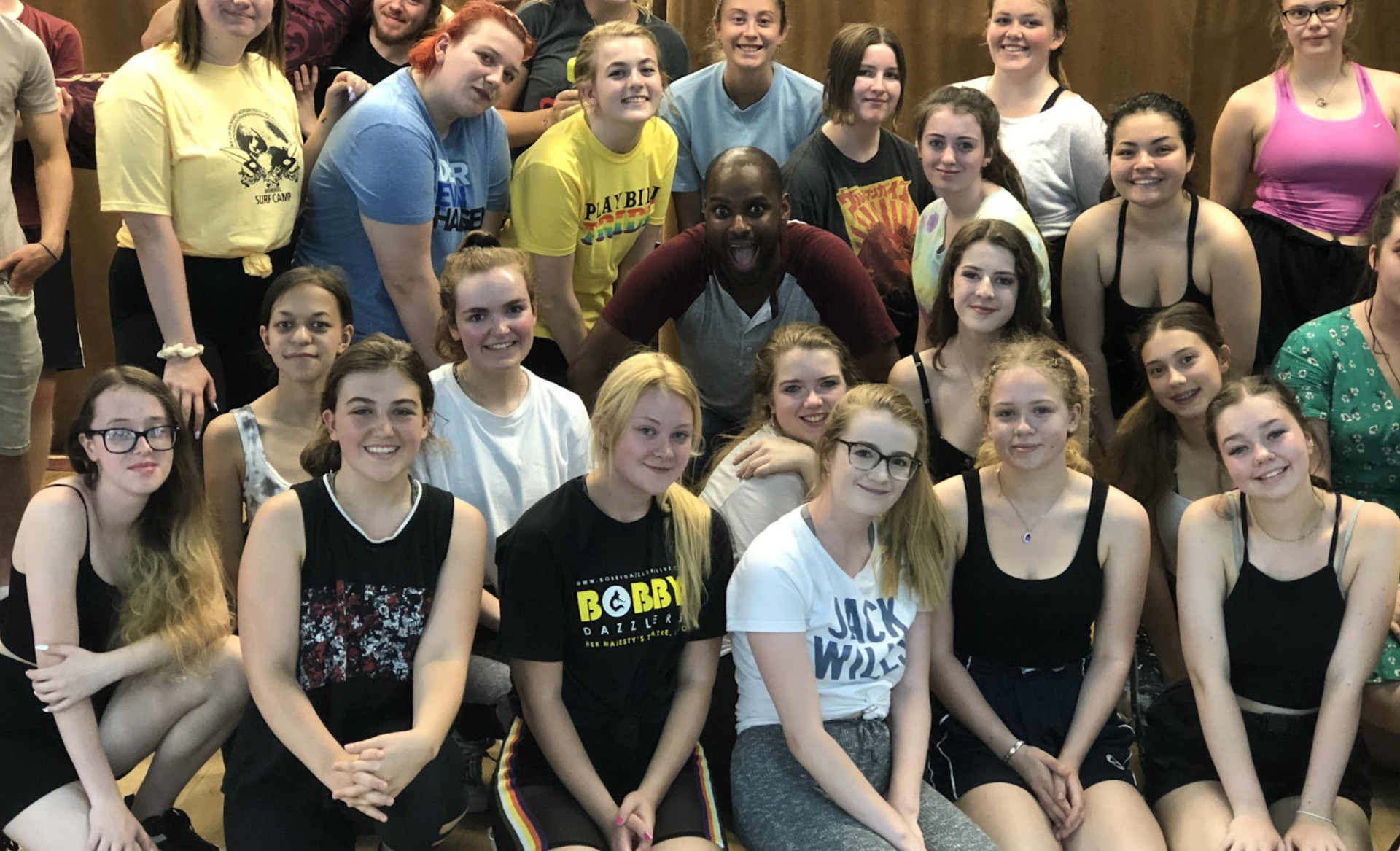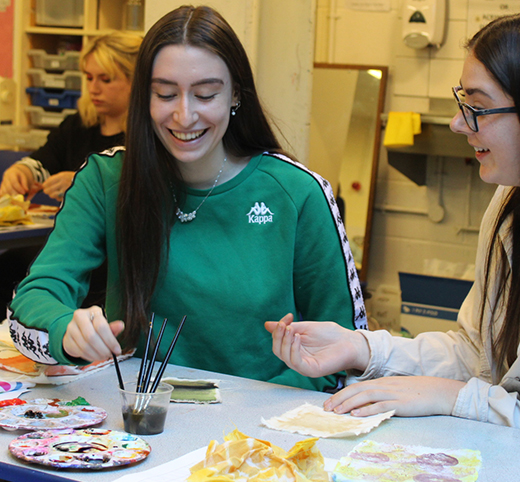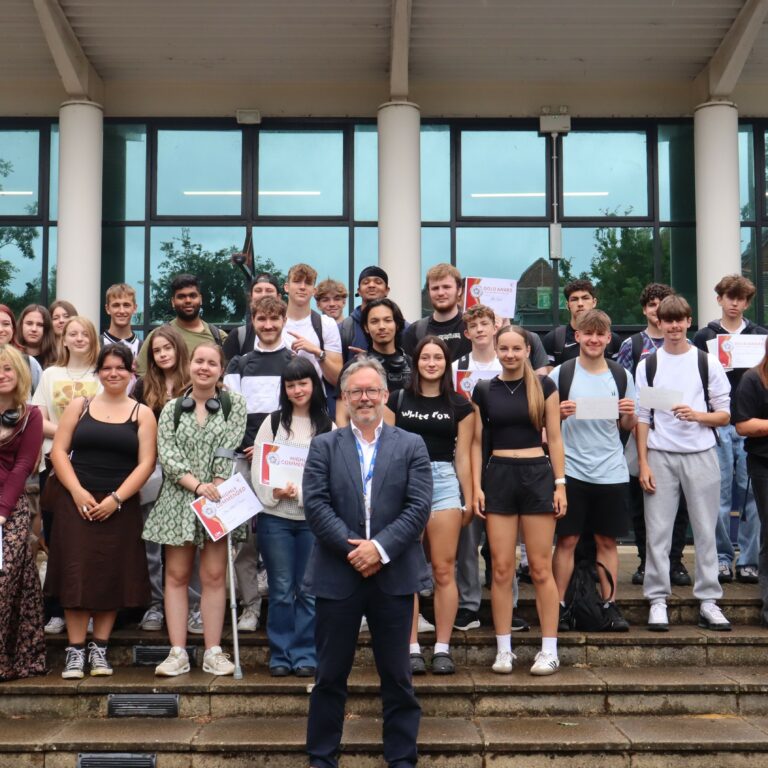The music courses at Queen Mary’s College are the perfect fit for anyone interested in gaining a greater understanding of music. We offer Music A Level, Music AS and Music Vocational Single courses. No matter which music course you choose to embark on, you will broaden your experience and deepen your understanding of both live and recorded music.
The Music Department
We have high expectations of all of our Music students and aim to challenge you to achieve outstanding results. Here at QMC, we are a Music Mark School Member. This recognises our excellent courses, facilities, teaching and opportunities for Music students.
We have excellent facilities and a team of highly dedicated, committed teachers who will ensure that you are provided with every chance of succeeding during your time at College. The Music teaching staff at QMC are all active musicians, composers, engineers, producers and examiners in their own right, and are able to relay their industry experience to their students.
“Thank you for all the hard work you do to ensure that students are able to access and engage with high-quality music education.”- Bridget Whyte, Chief Executive, Music Mark.
The QMC Music Scholarship
An exceptional opportunity to apply for an annual Music Scholarship at Queen Mary’s College, a specialist package of support for gifted music students to aid them in
reaching their full potential.
Music flourishes at QMC, we have a variety of popular and classical ensembles who perform in concerts at college and within the local community and two well equipped recording studios. Many of our students go on to study at conservatoires and universities such as The Institute of Contemporary Music Performance, The British and Irish Institute of Modern Music, Trinity Laban Conservatoire of Music and Dance, The Royal College of Music, Oxford, the Tonmeister course and LIPA.
Who can apply for a Music Scholarship?
The Scholarship is open to musically gifted students who play an instrument, sing or produce and who intend to study Music or Music Technology at QMC. You don’t have to have studied Music at GCSE or have taken formal grades but you should currently be a proficient performer or producer with a passion for music and for developing your skills. Please contact admissions@qmc.ac.uk if you are interested in applying for a Music Scholarship. Auditions will take place in the Spring term.
As a Music Scholar at QMC you will receive the following benefits;
● free tuition for one instrument with our instrumental/vocal teachers.
● The guarantee of a Music Teacher as your Personal Tutor.
● Extra support with applying to Conservatoires and Universities.
● Lots of opportunities to perform at college events
What are the main criteria for being awarded a Music Scholarship?
● A determination to develop your instrumental ability.
● An enthusiasm for regular active participation in College music activities and willingness to be an
ambassador for music and performing arts here at QMC.
● attending the audition
At the end of year 1 you will have a review with the music staff in which you will be able to continue your scholarship for a second year.
Our Performing Arts mission is to develop Creativity and Academic Excellence for your future:
- Strive for excellence and innovation
- Be authentic
- Be exciting, inspiring and engaging
- Ensure a positive and inclusive experience
- Enable personal progression


